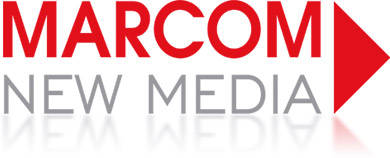Have you heard of an “RSS feed” or a “mashup?” You know what a“wiki” is, right? If not, you are not alone. In fact, many people are still clueless about social media marketing (SMM), which is defined as the use of the Internet technology tools for the purpose of sharing and discussing information with others. In other words, it is all about going on websites like Facebook, My Space, Twitter, or You Tube and sharing ideas, interests and “gossip” with other people of like mind ... or not. (People do disagree online of course.) But more important is to understand is how marketers use social media in our marketing efforts.
We can control messages and market your products and services online with well thought out SMM strategies, and clever tactics. For example, one such social media site is known as "del.icio.us” which is a social bookmarking website. These sites allow users to store and share your bookmarks online. You can access these bookmarks from any computer anywhere, anytime. Another SMM site is called “DIGG,” where users submit content and then other Digg users read your submission and Digg what they like. In this case popularity rules, and the more diggs you get the better it is for your brand.
Much of what MarCom New Media does is search engine optimization, combined with online public relations and marketing that all ties together. We do keyword analysis to see what terms folks use to search for your company online, then come up with a strategy to use those words in blogs, articles, releases, and on SMM websites, linking back to your website. It builds traffic so you can prosper online.
SMM Definitions:
RSS - Really Simple Syndication. This is the primary way people can syndicate content from Web sites, blogs and social networking sites to be read online by other people in what are known as RSS readers. RSS is very important for a company and its website because it allows people to track current news via their RSS Feeds.
RSS Tags. Simple technology that allows you to bookmark specific Web pages and sites of interest. It is how Digg and del.icio.us work.
Mashups. This brings multiple sources of data together and creates a single application, or Web service which helps manage events, etc. Content used in mashups usually comes from a third party via a public interface that combines data from more than one source into a single tool. One new example is Earthquake! A Google Maps mashup – thanks to the recent worldwide earthquakes.
Wikis. A collection of Web pages allowing anyone to add or edit content. This tool can help company employees, for example, in their collaboration efforts for projects or clients.
Internet marketing tactics continue to change on a frequent basis thanks to the search engines like Google, and new technologies. As marketers, we must learn fast, adapt, and then tweak strategies for what works best.
Thursday, September 11, 2008
Popular Social Media Marketing Terms
Subscribe to:
Post Comments (Atom)


1 comment:
Yep these terms are about right.
Post a Comment